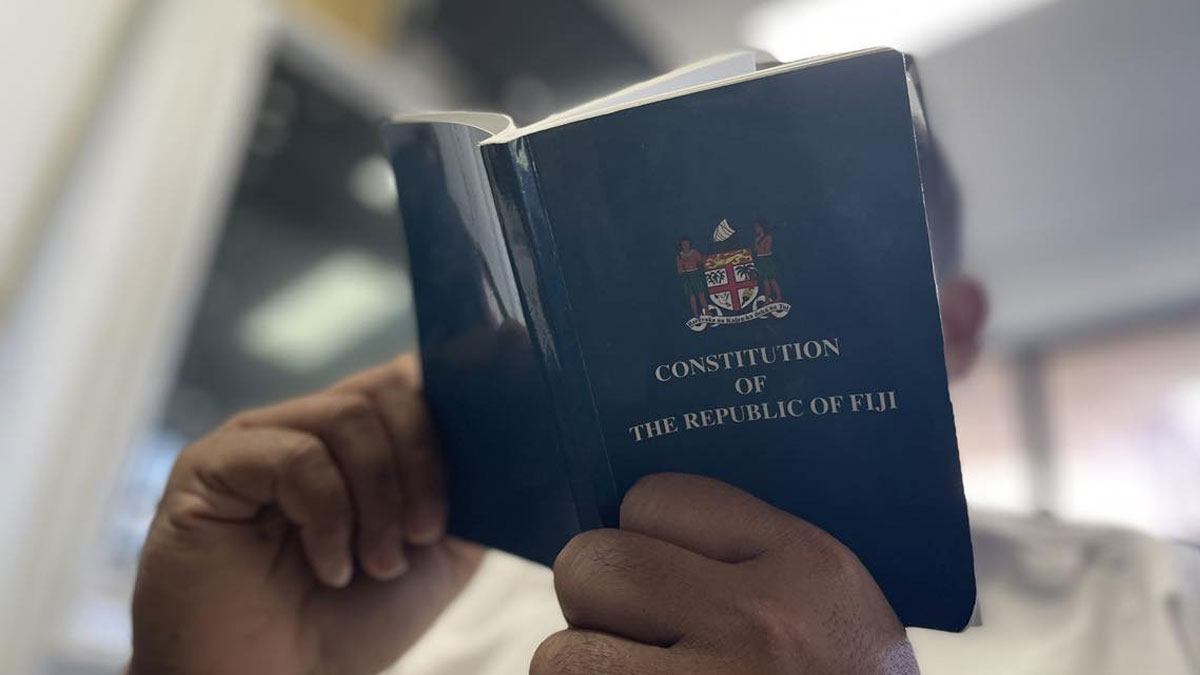
Fiji can adopt an electoral system with multiple constituencies as the 2013 Constitution has only specified that each voter has one vote in a single national electoral roll comprising of all the registered voters but it does not specify that there cannot be multiple constituencies.
This has been highlighted by Professor of Comparative Politics at Victoria University of Wellington, Jon Fraenkel who says the Multinational Observer Group reports on the 2014, 2018 and 2022 elections all interpreted that phrase ‘single national roll’ to mean a single national constituency.
He says many within Fiji have assumed likewise but the word ‘roll’ refers to the electoral roll or register and it is possible to have a single national roll, but multiple constituencies.
Professor Fraenkel says it is the 2014 Electoral Act which sets out the electoral laws that have operated in Fiji at the 2014, 2018 and 2022 elections.
He says in fact, even the Electoral Decree 2014 does not explicitly specify the need for a single national constituency.
Professor Fraenkel says it makes no use whatsoever of either the word ‘constituency’ or electoral ‘district’, but it does require that there should be a ‘national candidates list’ and it does not require any sub-division of voter lists.
He says it does require a ‘national results tally’ aggregating the polling station results, all of which imply, without stating explicitly, the use of a single nationwide constituency.
Professor Fraenkel says it also specifies a method of allocation of seats that makes no sense if there were multiple constituencies.
He, however, stresses that the Electoral Act 2014 is ordinary legislation which can be changed by act of parliament needing only a simple majority.
While highlighting the impact of a multiple-constituency model Professor Fraenkel says if there were several constituencies, it would be possible also to modify the style of the ballot paper to show both candidate names and parties.
He says all open list proportional systems, by definition, tally the results by party before identifying the most popular candidates within each party.
The Professor says it therefore makes sense to have the party, as well as the candidate, highly visible on the ballot paper and Fiji could thereby get rid of the Sudoku ballot paper.
He further says a multiple constituency model would lessen the emphasis on having a high-profile national leader able to draw votes and candidates could be required to register only in one of several constituencies.
Professor Fraenkel says a multiple constituency model would bring MPs closer to their voters so that they represent smaller geographical districts.
He says a 5 percent threshold in a multiple constituency model is not unusually high, internationally and it is only when this is applied across the whole country that it becomes such a formidable obstacle for smaller parties and independents.
Professor Fraenkel says minor parties or independents would be able to more easily reach the 5 percent threshold in smaller districts.
He adds the present single-constituency model also makes by-elections impossible except as a re-run of general elections.
Nationwide consultations for the electoral law reforms start on Monday.
Jon Fraenkel is a Professor of Comparative Politics in the School of History, Philosophy, Political Science and International Relations at Victoria University of Wellington. He was formerly a Senior Research Fellow based at the Australian National University (2007-12) and the University of the South Pacific in Fiji (1995-2007) and is an adjunct Professor at Griffiths University, Queensland, Australia. He has published extensively on the politics of Fiji, Solomon Islands, Vanuatu, New Caledonia, Republic of the Marshall Islands, Nauru, Kiribati, Tonga, Samoa and Papua New Guinea, and regularly contributed to media outlets. He also works on political settlements and electoral laws in deeply divided societies since the end of the Cold War.
Stay tuned for the latest news on our radio stations
